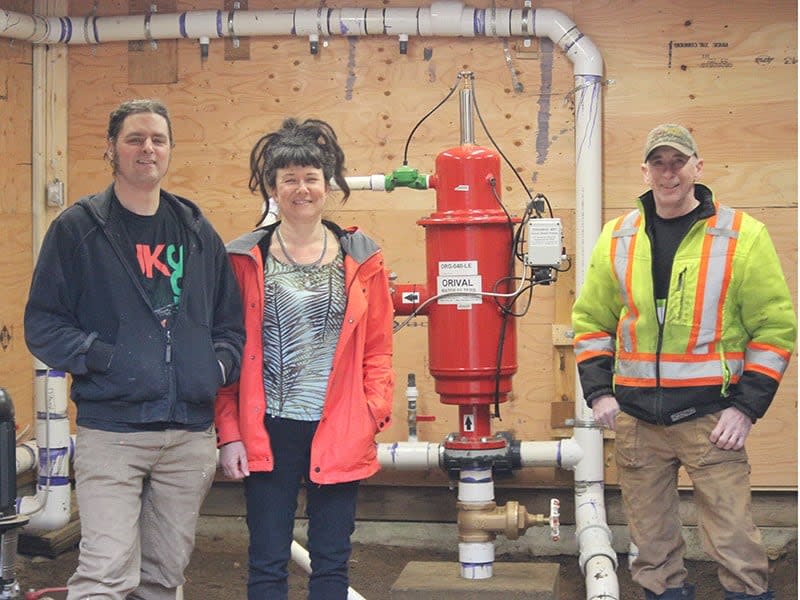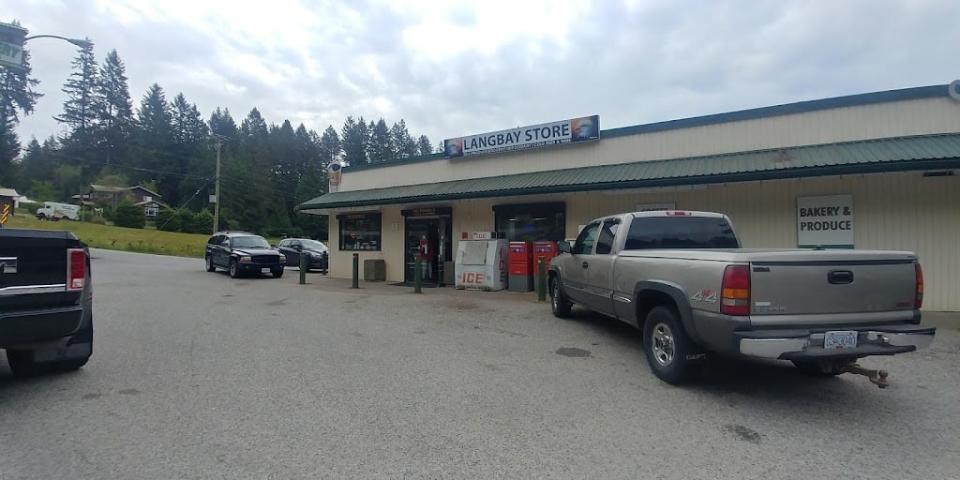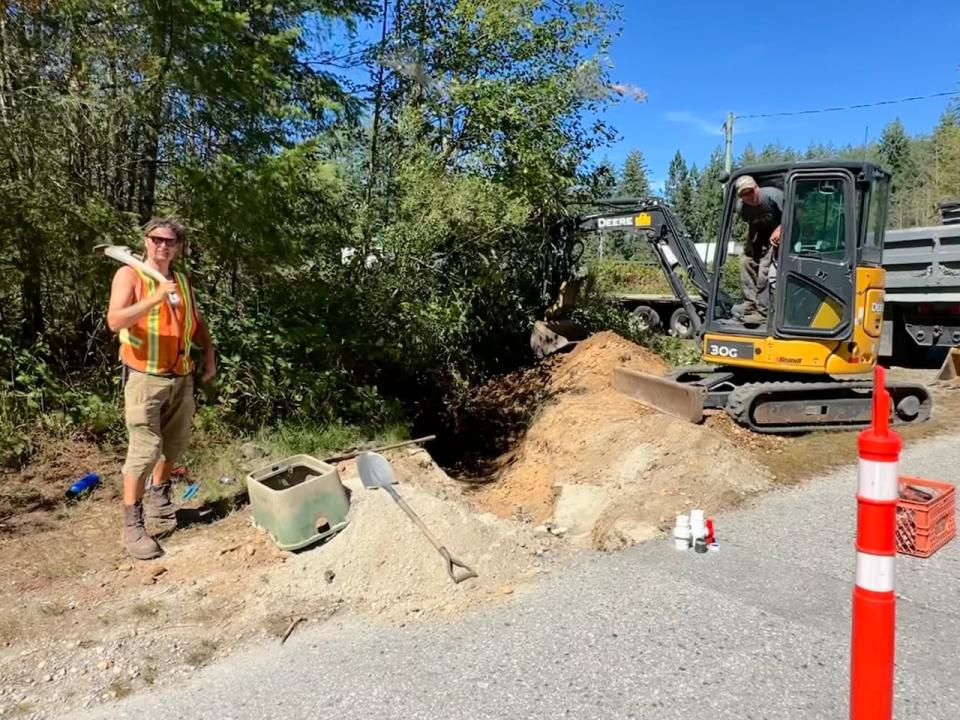Sunshine Coast community faces soaring water bills due to repairs deemed essential by private utility

Koreen Crawford says her water bill has become so high that she and her family are unsure how they will make ends meet next year.
The 83-year-old has lived on a family compound in the small community of Lang Bay on British Columbia's Sunshine Coast since 2009. The compound has three houses: one in which she lives with her son, while her adult granddaughters and their families live in the other two.
Before 2016, Crawford was charged $276 per year for water usage for the entire compound. When the owners of her local private water utility changed hands that year, they began charging per dwelling. Costs have also increased annually to the point where today she pays $2,736 per year for water for all three homes on her property.
But that bill is expected to soar again in 2024 — more than threefold, to $8,712, she says — after the owners of the Lang Bay Waterworks utility applied to the Ministry of Water, Land and Resource Stewardship to increase rates in order to cover repairs to what they describe as crumbling infrastructure.
The price of water is an issue many British Columbians in rural communities face, with some in Lang Bay saying responsibility for drinking water needs to be placed in the government's — not private utility owners' — hands.
Reliance on private water utilities
Lang Bay, located about 100 kilometres northwest of Vancouver, is home to 144 properties and is part of the qathet Regional District. It's among 122 rural communities in the province that rely on private water utilities for drinking water.
Private water utilities were born out of necessity in such communities.
Pat McCutcheon, who shares ownership of a family cottage in the area, says if you go back 80 years, everyone relied on wells until a neighbour "threw a pipe in the local creek" and shared the supply with the neighbourhood.
It's "just one of these things that has evolved over the decades," McCutcheon says.
Today, private water utilities determine water rates based on the health of the infrastructure. Those rates are then approved by the water comptroller under the Ministry of Water, Land and Resource Stewardship.
The 144 properties in Lang Bay rely on Lang Bay Waterworks, which is owned by Melanie and Tyler Pantalone. They say the infrastructure is crumbling.
"When we bought [the utility], I thought I was going to save the world," said Melanie Pantalone. "All we saw was shiny new equipment."
But over the past five years, she said, they discovered the UV filtration system installed by previous owners was inadequate, and many of the lines carrying water to Lang Bay properties are leaking.
A 2022 report by engineering firm MSR Solutions Inc., commissioned by Lang Bay Waterworks, recommended $1.2 million worth of repairs, or an additional $1,500 per year per dwelling for three years, leading Pantalone to apply to the water comptroller for a special temporary levy to cover the cost.
The special levy would be in addition to operating fees customers are already paying, which are also slated to increase.
But some residents don't know if they'll be able to afford it.

Prior to retirement, Koreen Crawford owned and ran the Lang Bay Store. She says the rising water bill isn't affordable on her fixed pension income. (Hartmut Hanschke)
"I'll have very little left over for food," said Crawford, who lives on a fixed pension and says she splits rent and utilities with her family — some of whom rely on disability income or are too young to work.
"How can we plan for the future when the costs are always going up?"
Pantalone says she understands her customers' frustrations, but said her research has shown this is the best option.
She says if she were to borrow the $1.2 million at the current interest rate of 6 per cent, for a 10-year loan that's $400,000 in interest that would eventually fall back on customers.
While the owners of private water utilities are paid a salary that is determined by the Ministry of Water, Land and Resource Stewardship, they are barred from making a profit and cannot access grants from the province, the ministry says.

Lang Bay Waterworks owners Melanie and Tyler Pantalone say costs are going up after they realized the UV filtration system and water lines required repairs and upgrades. (Melanie Pantalone)
'Basic human right'
McCutcheon says he currently pays "about $920 a year" for water in Lang Bay, where his family owns a cabin — "almost twice" the water bill in the Metro Vancouver city of Surrey, where he lives. After the rate increase, they will be paying about $3,000 per year for water in Lang Bay, he says.
McCutcheon says water should be managed by the government, and believes if infrastructure costs were distributed across the province, the average person wouldn't notice the increase.
Hartmut Hanschke, who owns a mobile home park in Lang Bay, agrees.
He says he is concerned three of his tenants who are on disability assistance will not be able to afford the increase.
"I think the real solution is having municipal water everywhere," Hanschke said, adding he wants water management to be transferred to the qathet Regional District so the local government can apply for grants to finance repairs.
According to the province, residents can petition the local government to take ownership of the water utility, but the private owners need to be willing to make the transfer.
"And why would they do that when it's their source of income?" said qathet regional board chair Clay Brander, referring to the Pantalones' salary.
It means customers have no practical way to influence their water utility to become municipally managed, even though municipalities can access grants that are not available to private companies.
But Brander also says grants aren't a sure thing, even if the regional district were to take over.
He points to the village of Lund at the northern end of the Sunshine Coast, where the previous owners of the private water utility abandoned it and left it to be taken over by the district. qathet Regional District petitioned the government for a $17 million dollar grant to make Lund Waterworks functional, but the application was unsuccessful.
Hanschke says clean and affordable drinking water is the government's responsibility to provide and referenced United Nations Resolution 64/292: "Water is a basic human right."
In a statement, the Ministry of Water, Land and Resource Stewardship says it does not have a plan to phase out private utility companies. But it says it is in the public interest for local governments to provide water services because they have access to grants, taxation and economies of scale not available to private companies.
CBC News has asked the ministry for comment on the rate increases in Lang Bay.

